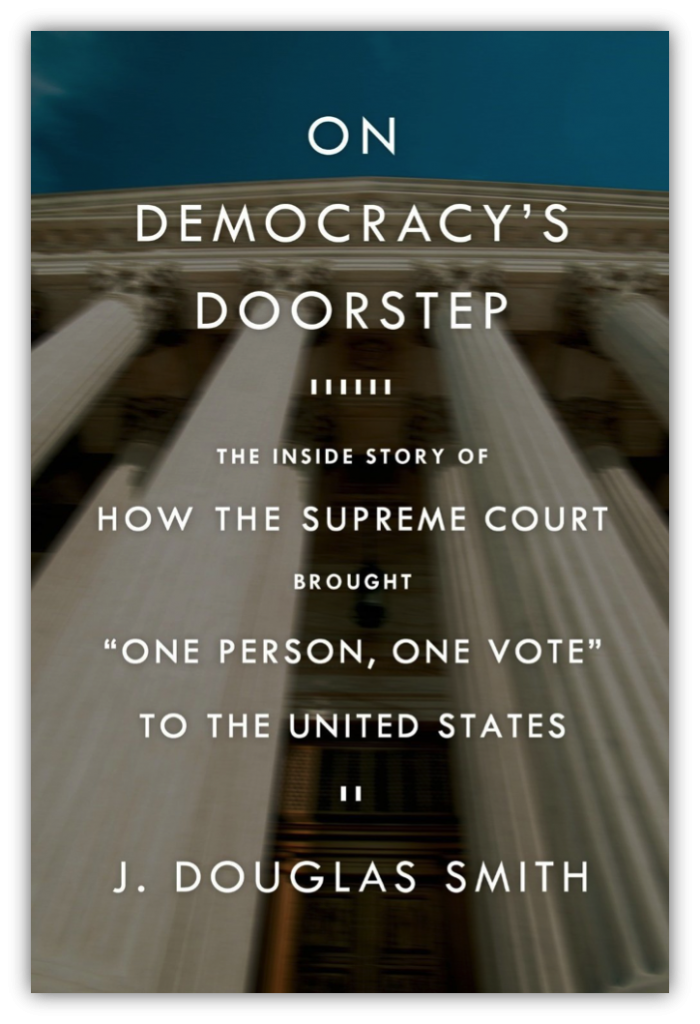New from Hill & Wang:
On Democracy's Doorstep: The Inside Story of How the Supreme Court Brought "One Person, One Vote" to the United States, by
J. Douglas Smith (Director of Humanities, Colburn Music Conservatory). A description from the Press:
As chief justice of the U.S. Supreme Court, Earl Warren is most often
remembered for landmark rulings in favor of desegregation and the rights
of the accused. But Warren himself identified a lesser known group of
cases—Baker v. Carr, Reynolds v. Sims, and their companions—as his most
important work. J. Douglas Smith’s On Democracy’s Doorstep
masterfully recounts the tumultuous and often overlooked events that
established the principle of “one person, one vote” in the United
States.
Before the Warren Court acted, American democracy was in
poor order. As citizens migrated to urban areas, legislative boundaries
remained the same, giving rural lawmakers from sparsely populated
districts disproportionate political power—a power they often used on
behalf of influential business interests. Smith shows how activists
ranging from city boosters in Tennessee to the League of Women Voters
worked to end malapportionment, incurring the wrath of chambers of
commerce and southern segregationists as they did so. Despite a
conspiracy of legislative inaction and a 1946 Supreme Court decision
that instructed the judiciary not to enter the “political thicket,”
advocates did not lose hope. As Smith shows, they skillfully used the
Fourteenth Amendment’s Equal Protection Clause to argue for radical
judicial intervention. Smith vividly depicts the unfolding drama as
Attorney General Robert F. Kennedy pressed for change, Solicitor General
Archibald Cox cautiously held back, young clerks pushed the justices
toward ever-bolder reform, and the powerful Senate Minority Leader
Everett Dirksen obsessively sought to reverse the judicial revolution
that had upended state governments from California to Virginia.
Today, following the Court’s recent controversial decisions on voting rights and campaign finance, the battles described in On Democracy’s Doorstep
have increasing relevance. With erudition and verve, Smith illuminates
this neglected episode of American political history and confronts its
profound consequences.
A few blurbs:
“Today, the principle of ‘one person, one vote’ is fundamental to
democracy—but it wasn’t always so. On Democracy’s Doorstep tells how the
Supreme Court decided to enter the political thicket and create the
modern law of democracy, and how a proposed constitutional amendment
almost reversed the Court. In today’s era of partisan gerrymandering and
the overturning of the Voting Rights Act, this book could not be more
timely and relevant.” —Noah Feldman
“On
Democracy’s Doorstep is the compelling story of how a president and a
Supreme Court rescued American democracy a half century ago—a vitally
important book for our democracy’s new age of crisis.” —John Fabian Witt
More information is available
here.
